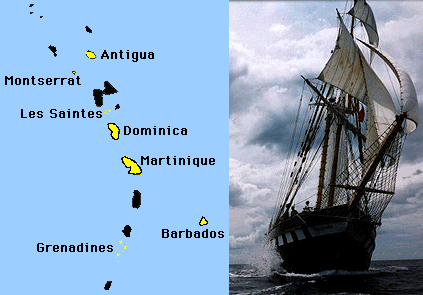OBJECTIVES AND BACKGROUND

This web site documents the 1997 senior undergraduate field camp of
the Department of Earth Sciences Carleton University, Ottawa, Ontario and
was carried out between February 22 and March 8, 1997. In addition, participants
from the Department of Geological Sciences at the University of Ottawa
took the trip as part of a course on Reefs and Volcanoes. The two departments
comprise the Ottawa-Carleton Geoscience Centre, an arrangement beneficial
to both departments, as researchers and students at both institutions share
resources. We plan to run this trip at approximately the same time next
year, and will welcome participants from outside the Ottawa-Carleton Geoscience
Centre. If you are interested in joining us please contact either
Dr. Tony Fowler (University of Ottawa),
Dr. Andre Desrocher (University of Ottawa, or Dr.
Tim Patterson (Carleton University) for information on pricing and
availability.
The reason for taking the field trip stems from one of the underpinnings
of geology, the principle of uniformitarianism enaunciated by James Hutton.
A pioneers of geology, Hutton, Scotsman and surveyor, was a keen natural
scientist whose work required he travel over Great Britain. He made numerous
observations regarding the layers or beds of sedimentary rocks and deduced
that the rocks were very old and deposited slowly layer by layer. Moreover,
he showed that the observation of present processes e.g., the accumulation
of sediments at a river mouth, yields understanding of the processes that
gave rise to rocks. Thus his formulation of the principle of uniformitarianism:
THE PRESENT IS THE KEY TO THE PAST. The principle of uniformitarianism
is an essential concept for teaching. Geology students must go into the
field and sometimes to remote locations to examine modern environments
in order to understand those of the past. Two environments that are important
to geologists both intrinsically and economically are volcanoes
and coral reefs. Hence our trip to the
Caribbean to see these rocks under formation.